Understanding Threads and Processes in Node.js: A Comprehensive Guide
 Vishwajit Vm
Vishwajit Vm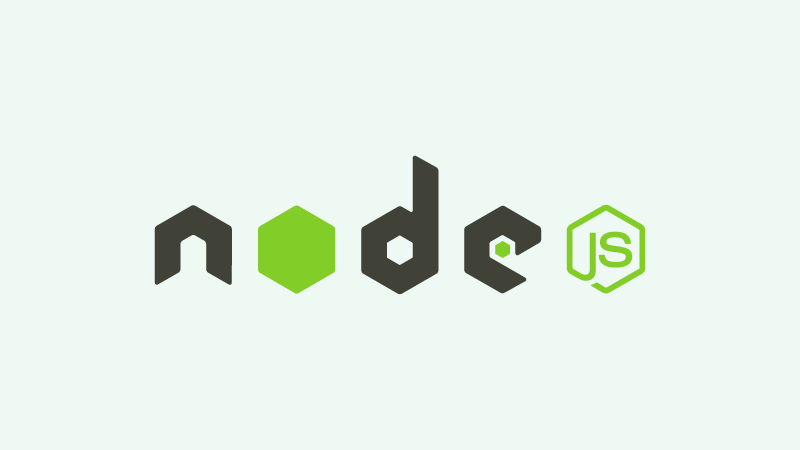
In Node.js, understanding how threads and processes work is crucial for building efficient and scalable applications. Let’s dive into the details of threads, processes, and their interaction with the libuv library.
Threads and Processes
Threads
A thread in Node.js is a separate execution context within a single process. It’s a lightweight, independent unit of processing that can run in parallel with other threads within the same process.
Each thread resides within the process memory and has its own execution pointer. However, they share the heap of the process.
Threads are essential for handling concurrent tasks efficiently. They allow us to perform multiple operations simultaneously, improving overall performance.
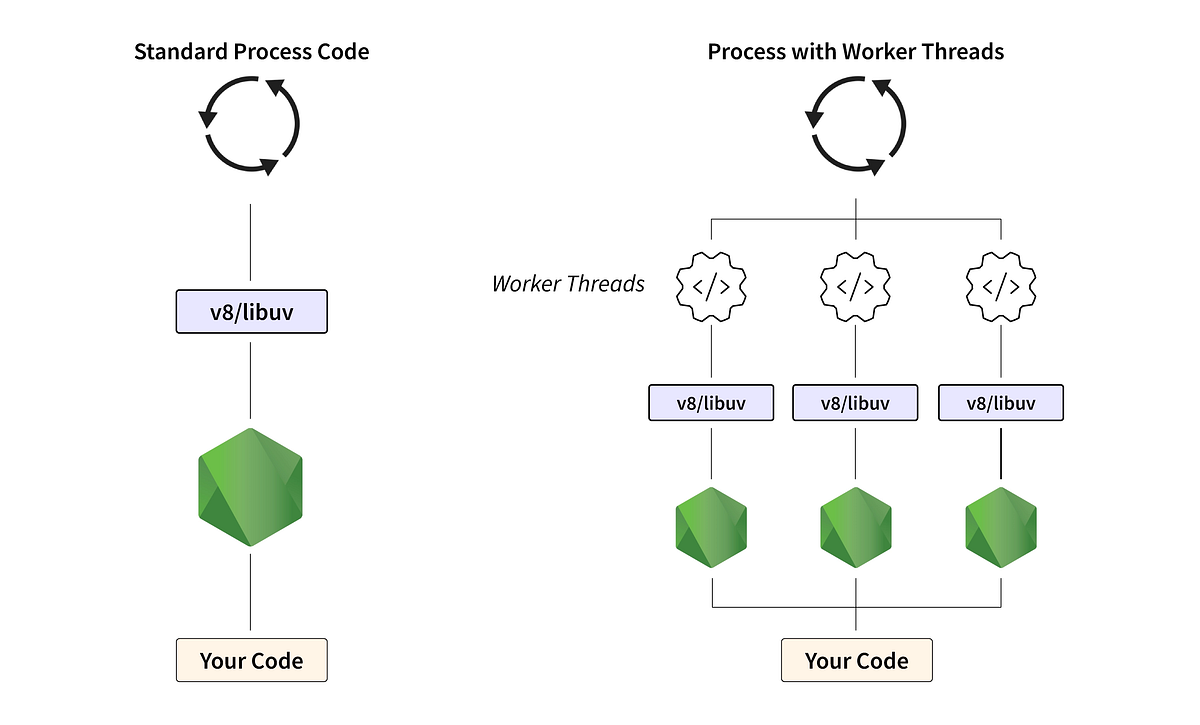
Processes
A process represents an independent program execution in the operating system. It has its own memory space, file descriptors, and other resources.
In Node.js, each Node process runs in a single thread by default. However, Node.js itself is multithreaded and provides hidden threads through the libuv library.
Libuv handles I/O operations like reading files from disk or making network requests. It allows your code to make I/O requests without blocking the main thread1
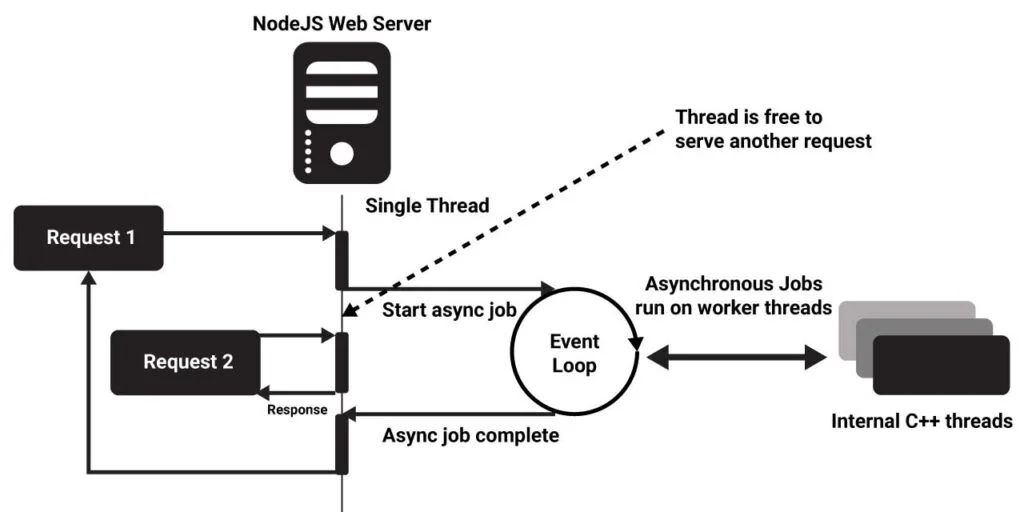
Libuv: The Heart of Node.js
What is Libuv?
Libuv is a C library originally written for Node.js to abstract non-blocking I/O operations.
It enables an event-driven asynchronous I/O model, allowing the CPU and other resources to be used simultaneously while still performing I/O operations efficiently.
Libuv facilitates a callback-based approach for I/O and other activities, preventing wastage of system resources.
Key features of libuv include handling services like File System, DNS, network, child processes, pipes, signal handling, polling, and streaming.
Event Loop
The event loop is at the core of libuv. It uses a single-threaded asynchronous I/O approach.
When a network request or any other asynchronous operation occurs, a callback is registered.
The event loop listens for incoming I/O and emits events for each request.
After successful execution, the registered callback is enqueued in the event queue and executed by the main thread.
Libuv caches the current time during each iteration of the loop to minimize frequent system calls
Thread Pool
While libuv doesn’t use threads for asynchronous tasks, it employs a thread pool for operations that can’t be done asynchronously at the OS level.
For example, libuv uses threads to make synchronous file system (fs) calls asynchronous.
-
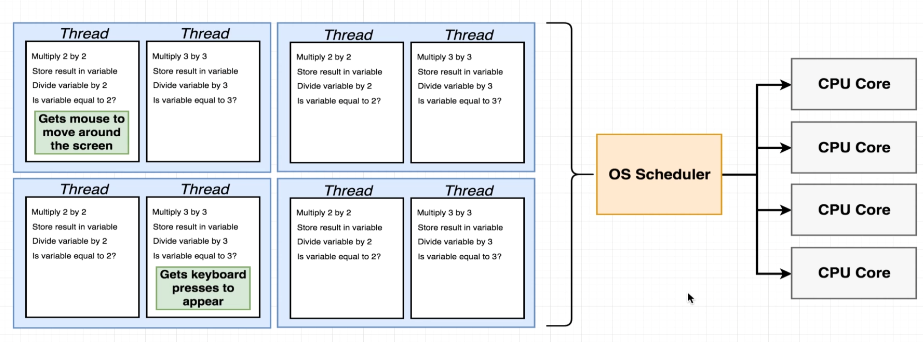
Examples
Asynchronous File Read
const fs = require('fs'); fs.readFile('example.txt', 'utf8', (err, data) => { if (err) { console.error('Error reading file:', err); } else { console.log('File content:', data); } });In this example, the file read operation is non-blocking, thanks to libuv.
HTTP Server
const http = require('http'); const server = http.createServer((req, res) => { res.writeHead(200, { 'Content-Type': 'text/plain' }); res.end('Hello, Node.js!'); }); server.listen(8080, () => { console.log('Server listening on port 8080'); });The HTTP server handles multiple client requests concurrently using libuv’s event loop.
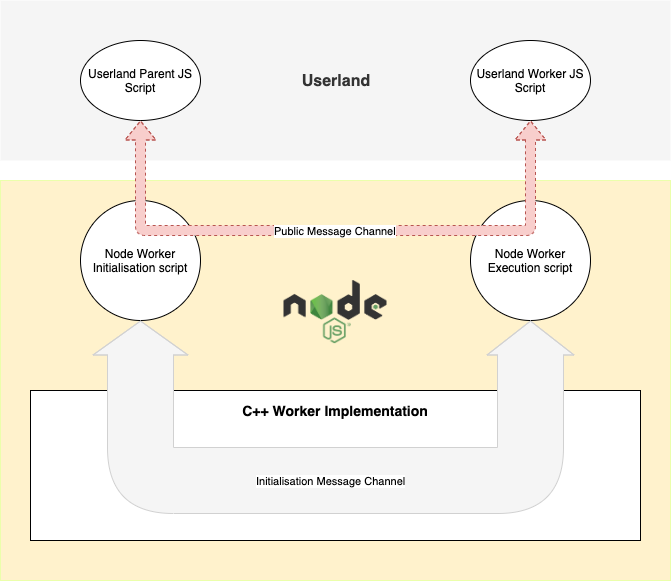
Conclusion
Understanding threads, processes, and libuv is essential for writing efficient Node.js applications. By leveraging asynchronous I/O and libuv’s features, you can build high-performance systems that scale gracefully.
Remember, Node.js empowers you to create powerful applications by harnessing the underlying magic of threads and processes! 🚀🌟
Subscribe to my newsletter
Read articles from Vishwajit Vm directly inside your inbox. Subscribe to the newsletter, and don't miss out.
Written by

Vishwajit Vm
Vishwajit Vm
Hey, my name is Vishwajit, and I’m from New Delhi. I specialize in backend development and AI, working with technologies like Python, Node.js, Express.js, GraphQL, and vector databases to build intelligent, scalable solutions. Alongside my backend and AI expertise, I also work with PHP, Laravel, MySQL, MongoDB, React, Next.js, HTML, CSS, and more. I enjoy combining robust technical architecture with creative design, offering clients sophisticated solutions that are also cost-effective. I believe in continuously learning new tools and strategies to stay ahead of trends and deliver exceptional results. Through dedication and hard work, I’m focused on growing as a skilled software engineer and designer. With my passion for technology and design, I’m confident I can help you bring your creative vision to life. Let’s collaborate and create something truly extraordinary!